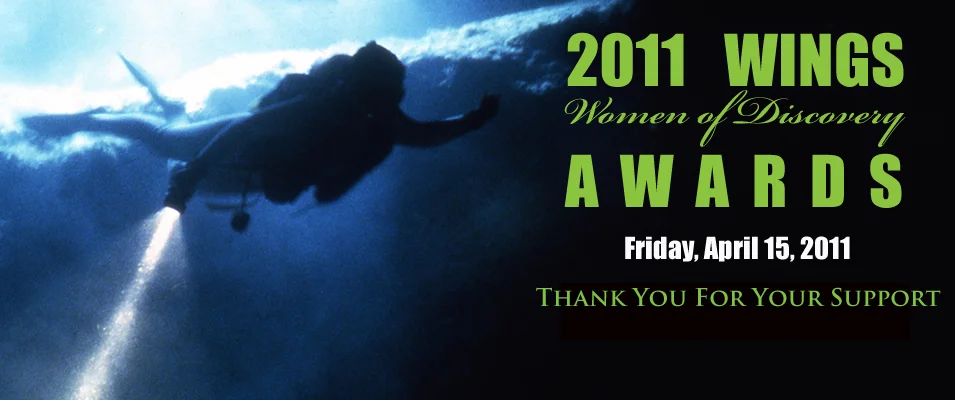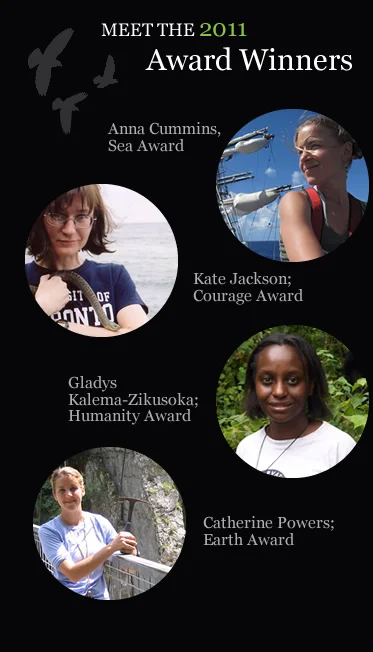2011 WINGS WorldQuest Women of Discovery Awards
Friday, April 15, 2011, 6:00–10:30 p.m.
Donna Karan’s Urban Zen,
711 Greenwich Street, NYC
Co-Chairs:
Kitty Pilgrim and Christine Dennison
Entertainment by the Kit McClure Band
With their cutting-edge science, spirit of adventure, and capacity to transport attendees to realms seldom seen, the
Women of Discovery Awards
have become a “must attend” event. Among this year’s awardees—who will be honored at a gala dinner on April 15, 2011—are pioneering researchers in human/environmental conflict, atmospheric chemistry, marine conservation, and Arctic survival.
Established in 2003, the WINGS WorldQuest Women of Discovery Awards recognize outstanding women who are making significant contributions to world knowledge through exploration. The awards include a research grant, travel to New York, and opportunities to present field research to the press and greater public. Awards are given annually in the following categories: Air & Space, Earth, Sea, Humanity, Courage, Field Research, and Lifetime Achievement. To date, 48 pioneering women have received the WINGS Women of Discovery Award.
Special tribute to
Milbry C. Polk, WINGS 2010 Fellow
In addition, we will be saluting WINGS WorldQuest co-founder,
Milbry C. Polk, who was designated a 2010 Fellow by unanimous vote of the WINGS’ Board of Directors for her commitment to women in exploration following last year’s Women of Discovery Awards gala.
- Polly Wiessner
- Polly Wiessner is an anthropologist who has spent three decades studying social networks and survival among the Kalahari Bushmen of southern Africa and issues of warfare, religion, and exchange among the Enga of Papua New Guinea. Recently, she has looked at the impact of globalization on traditional systems to understand how people adapt to a rapidly changing world.
- Katey Walter Anthony
- Katey Walter-Anthony made headlines in 2007 when she and her team determined that methane bubbling out of thermokarst lakes in the Arctic was likely the source of the spike in atmospheric methane at the end of the last Ice Age. She estimates some 10 times the amount of methane that is currently in the atmosphere will come out of these lakes as permafrost thaws with global warming.











